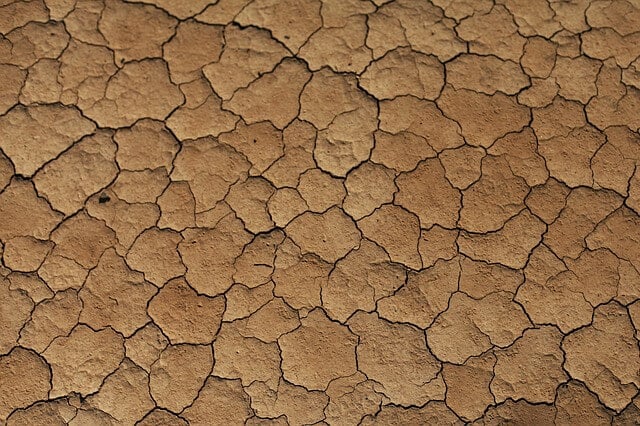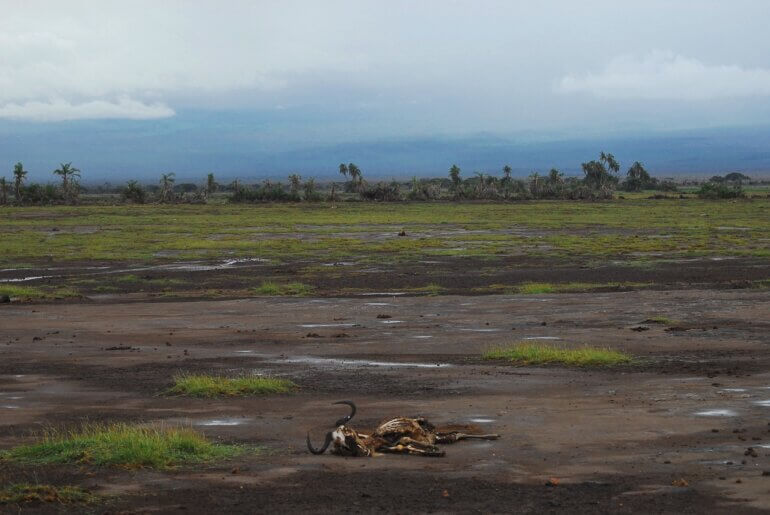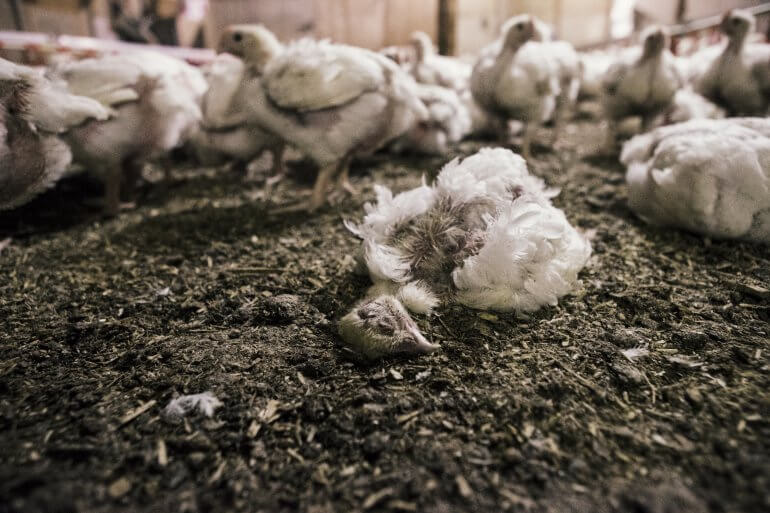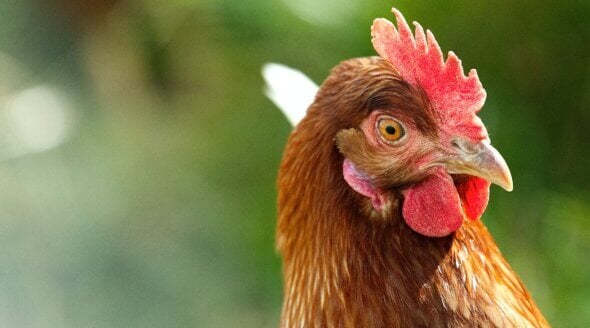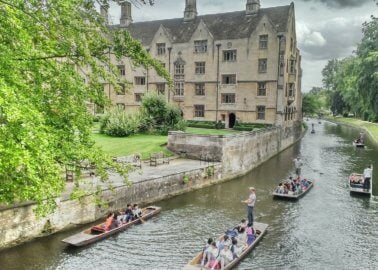PETA Founder’s Public Shower Highlights Meat’s Devastating Role in Drought
To pull back the curtain on the environmental harm wrought by the meat industry, including wasting water in India, which is experiencing drought, PETA founder Ingrid Newkirk lathered up in Mumbai while taking a shower in the middle of a busy part of the city.
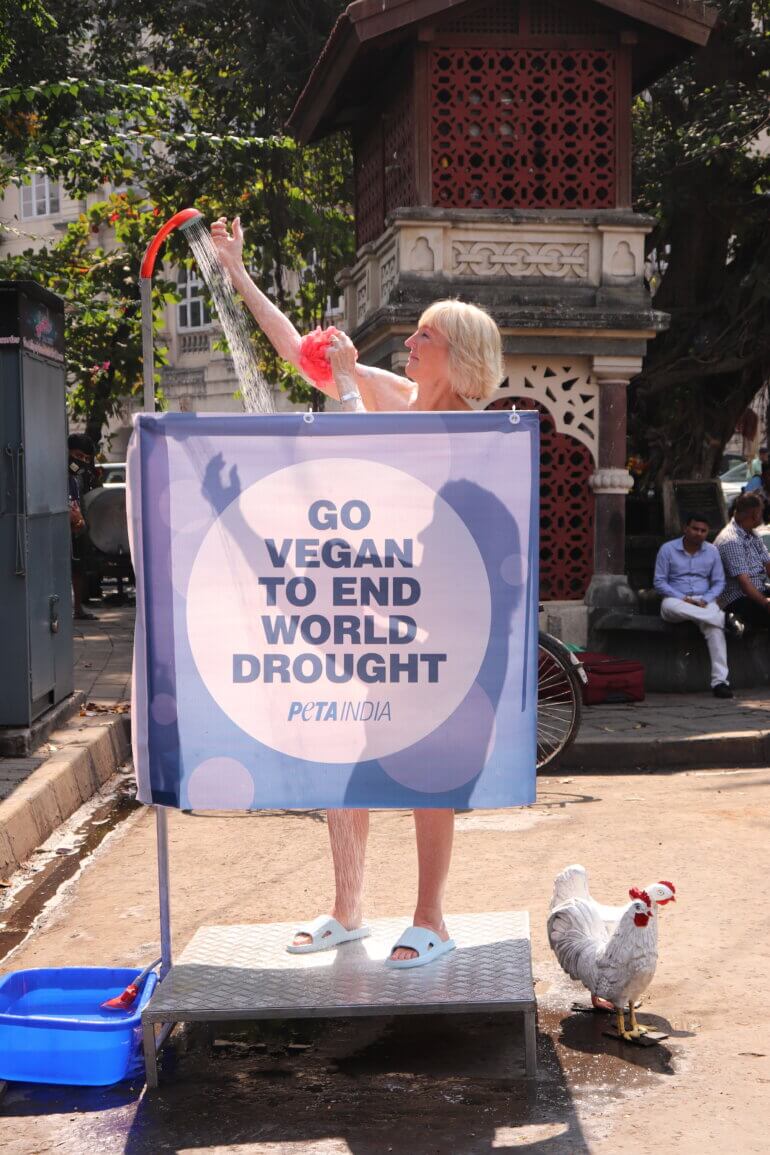
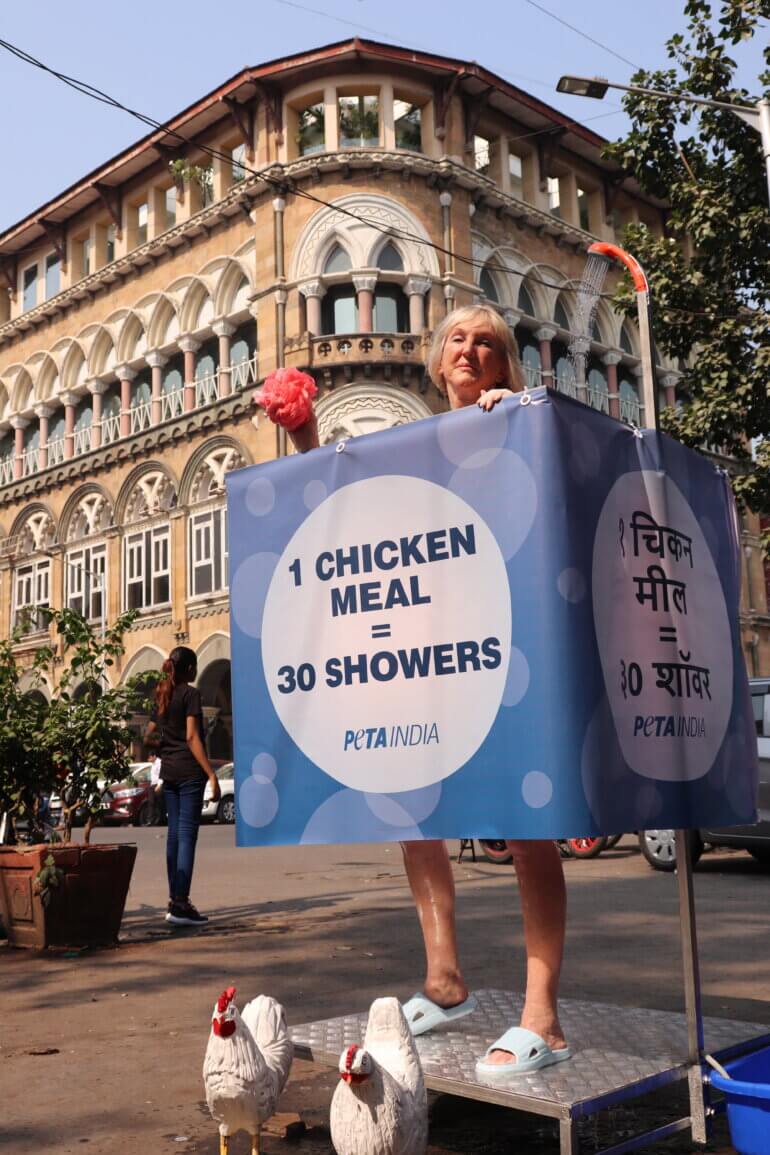
Her message is simple: the best thing people can do to save water and stop contributing to the global climate catastrophe is to go vegan.
One Chicken Meal = 30 Showers
Did you know that meat and dairy production requires up to 50 times more water than the production of plant foods like pulses, vegetables, and grains?
Between watering the crops that farmed animals eat, providing billions of animals with drinking water each year, and cleaning away the filth in farms, lorries, and abattoirs, animal farming places a serious strain on our water supply. Each meat-eater is responsible, on average, for using 15,000 litres of water a day. It takes the equivalent of 30 showers to produce just one meal’s worth of chicken.
While one in four people around the globe lack access to safe drinking water, the production of animal-derived foods uses a third of the world’s freshwater resources.
Nightmare for the Planet
By some estimates, animal agriculture is responsible for more greenhouse gas emissions than all the world’s transportation systems combined.
Animal agriculture also uses a third of global cropland, which could be used to feed hungry humans instead of the animals who are bred and raised only to be used and killed.
Chickens Are Among the World’s Most Abused Animals
Chickens raised for meat, or “broiler chickens”, are bred to grow unnaturally fast and fed a mix of high-protein feed and antibiotics. These unhappy birds develop such a large upper body that they can barely support their own weight. Many become immobile after a couple of weeks, dying of starvation or heart failure.
The birds reach “slaughter weight” at only 42 days old. Then, they’re sent to their deaths without ever having roosted in a tree, taken a dust bath, interacted with their parents, or done any of the other things that are important to chickens.
They’re roughly shoved into crates and driven to the abattoir, where they’re stunned before slaughter either by gassing or by being shackled by the legs and hung upside down on a production line so that their heads can be plunged into an electrified water bath.
The Best Time to Go Vegan Is Now
Spare animals’ lives and save precious resources by choosing vegan foods – before life as we know it and the environment go down the drain. What are you waiting for?

